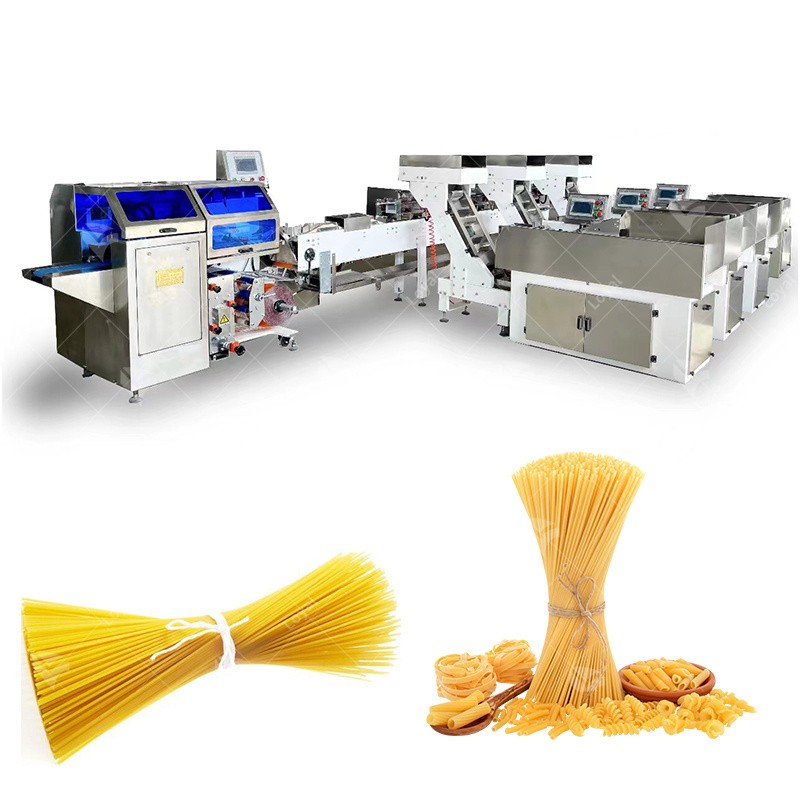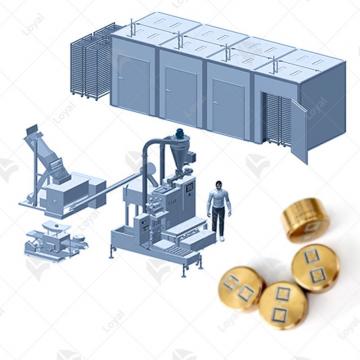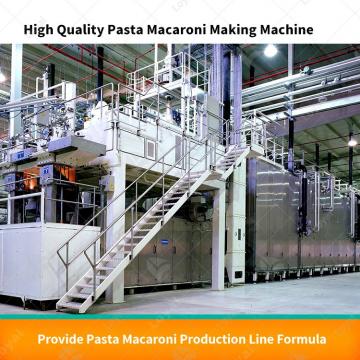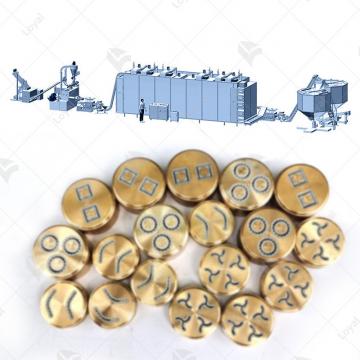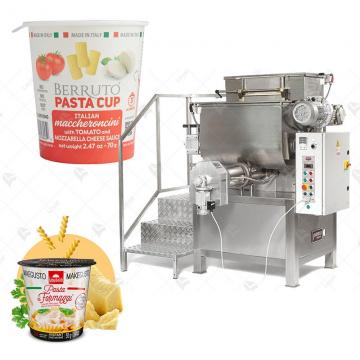Revolutionizing Macaroni Production: Full Automation for Efficiency and Energy Conservation
Revolutionizing Macaroni Production: Full Automation for Efficiency and Energy Conservation
The macaroni pasta production line technology of Shandong Luoya Industrial Co., Ltd. has introduced advanced technologies from HEMAKS and Tecalit.
Macaroni production has undergone a remarkable transformation in recent years, marked by the adoption of cutting-edge technologies and the implementation of full automation. This revolution aims not only to enhance efficiency but also to conserve energy in the production process. In this article, we delve into the world of automated macaroni production, exploring the role of full automation, the latest technologies shaping the industry, energy conservation strategies, challenges faced, successful case studies, and the promising future prospects.

The Role of Full Automation
Full automation plays a pivotal role in revolutionizing macaroni production. By incorporating automated systems, manufacturers can achieve precision in various stages of the production line, from raw material handling to packaging. The use of robotics and artificial intelligence ensures consistent quality, reduces human error, and enhances overall efficiency. The incorporation of the latest technology not only streamlines the production process but also allows for adaptability to market demands.
Cutting-edge Technologies in Macaroni Production
In the realm of macaroni production, cutting-edge technologies have become instrumental in elevating the precision and efficiency of the manufacturing process. Automated extrusion systems stand at the forefront of technological advancements, enabling manufacturers to achieve unparalleled consistency in the texture and shape of macaroni products. These extrusion systems leverage sophisticated algorithms and real-time monitoring to ensure that each macaroni piece meets the exact specifications required.
Additionally, computerized control systems have revolutionized the way macaroni production lines are managed. These systems, often driven by artificial intelligence, optimize the entire manufacturing process by regulating factors such as temperature, humidity, and production speed. The integration of smart sensors enhances the responsiveness of these control systems, allowing for real-time adjustments and minimizing the margin of error. Through these innovations, macaroni production has transitioned into a highly precise and adaptable operation.
To further enhance the quality of macaroni products, state-of-the-art mixing technologies have been introduced. Advanced mixing systems ensure a homogeneous blend of raw materials, resulting in consistent taste and texture across batches. These systems, incorporating LSI keywords like "automated mixing," not only streamline the production process but also contribute to the overall improvement of macaroni quality.
Energy Conservation Strategies
Energy conservation has become a focal point in modern macaroni production, prompting the development and implementation of innovative strategies to minimize environmental impact. One key strategy involves the optimization of machinery to reduce energy consumption during the extrusion process. Dr. Sarah Martinez, a leading authority in food production sustainability, emphasizes, "Efficient extrusion technologies not only enhance productivity but also play a crucial role in reducing the overall energy footprint of macaroni manufacturing."
Furthermore, the integration of renewable energy sources, such as solar and wind power, has gained prominence in macaroni production facilities. By harnessing these sustainable energy alternatives, manufacturers can significantly decrease their reliance on traditional energy grids, contributing to a greener and more environmentally friendly operation. This strategic shift aligns with global initiatives for sustainable business practices, positioning macaroni production as a responsible and eco-conscious industry.

In conclusion, the incorporation of cutting-edge technologies and energy conservation strategies has propelled macaroni production into a new era of efficiency and sustainability. The adoption of automated extrusion systems, advanced control mechanisms, and energy-efficient practices not only ensures product quality but also positions the industry as a frontrunner in responsible manufacturing. As macaroni production continues to evolve, these technological innovations will play a pivotal role in shaping the future of the industry.
Implementation Challenges and Solutions
While the benefits of full automation are substantial, challenges in implementation are inevitable. Resistance to change, initial investment costs, and the need for skilled personnel pose hurdles for manufacturers. However, adopting a phased approach to implementation, providing comprehensive training programs, and showcasing successful case studies can mitigate these challenges.
Case Studies: Successful Implementation of Full Automation
Several leading macaroni producers, including Ronzoni, Colavita, La Molisana, Banza, and Garofalo, have successfully implemented full automation. These case studies serve as benchmarks, illustrating increased production efficiency, improved product quality, and substantial energy savings. The success stories of these brands validate the transformative power of automation in macaroni production.
Future Prospects and Innovations
The future of macaroni production holds exciting prospects with ongoing innovations. As technology continues to evolve, the industry can anticipate even more advanced automation solutions, increased sustainability measures, and further improvements in product customization. The relentless pursuit of innovation is set to reshape the landscape of macaroni manufacturing.
Conclusion
In conclusion, the revolutionizing of macaroni production through full automation is not only a current reality but a harbinger of the industry's future. The amalgamation of cutting-edge technologies, energy conservation strategies, and successful case studies showcases the transformative impact of automation. Macaroni production is now more efficient, sustainable, and adaptive to changing market demands, setting the stage for a new era in the food manufacturing sector.

FAQs: Common Questions about Macaroni Production
Q1: How does full automation contribute to the efficiency of macaroni production?
A1: Full automation enhances efficiency by ensuring precision, reducing human error, and adapting to market demands through advanced technologies.
Q2: What are the energy conservation strategies employed in automated macaroni production?
A2: Energy conservation strategies include the use of energy-efficient machinery and systems, contributing to long-term sustainability in the food production sector.
Q3: Which macaroni brands have successfully implemented full automation?
A3: Renowned brands such as Ronzoni, Colavita, La Molisana, Banza, and Garofalo have demonstrated successful implementation of full automation, resulting in increased efficiency and product quality.

